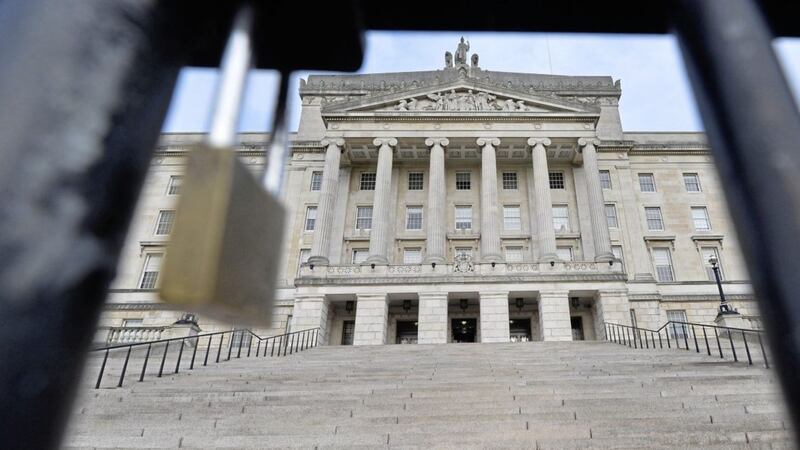I've written before that the past is always in front of us in Northern Ireland. No matter how much we talk about addressing it, nor how hard we try to free ourselves from it, we always return to it.
And the reason we always return to it, is because there is nowhere else to go when there is no agreement on the present or future. The past is our comfort zone. We wrap ourselves in old grievances - many of them predating our own births by decades or centuries - and refuse to shed them and move on until someone has addressed them to our satisfaction. I've talked to school pupils who are irked by Cromwell, Henry 2, Michael Collins and King James!
I've heard a number of suggestions for 'dealing with the past.' Establish a truth and reconciliation commission; draw a line in the sand; introduce an amnesty; introduce a statute of limitations (which many see as an amnesty in another name, although it's not, in fact, the same thing); keep on chasing down murderers, irrespective of age; have a remembrance day to acknowledge and support all those who regard themselves as victims; wind up all the old parties and encourage the participation of a generation who don't have 'baggage.' Indeed, there's a whole industry devoted to discovering the machinery for unravelling and explaining the past.
The problem, of course, is that most people don't want the past explained. They want evidence from the past to sustain and justify their present prejudices, beliefs and political positions. In other words, the past is of no use to them unless it allows them to conclude every debate, letter to the editor, tweet, or call to a 'phone-in programme, with the words: "See, I told you it was the fault of themuns all along. They started it." For them, the past is an old weapon - always to hand - rather than an escape route.
Sadly, there is a more uncomfortable truth to deal with. No amount of understanding the past is going to change the fact that the primary political divide in Northern Ireland will remain that of United Kingdom unionism versus United Ireland nationalism. In 1974, 1985, 1998 and 2007 we experimented with frameworks and institutions which tried to 'park' the constitutional question, while the parties got on with dealing with the everyday realities of the here and now. Like health, education, economics and social integration. But we were always dragged back to the 'dreary steeples'; and, just as the Sunningdale Agreement and assembly bit the dust, so too will the Good Friday Agreement and assembly bite that same dust of exploded optimism.
Reconciliation requires agreement on the past and the future. It requires collective acknowledgment of past wrongs, collective determination to work together in a common cause and collective commitment to working together to rebuild a country that is emerging from conflict. It requires certainty that violence no longer remains an option for elements on both sides. It requires political and electoral stability. It requires demonstrable evidence of a change in how the former opponents think and do business together. It requires a drift to the centre rather than a polarising around the fixed positions of the past. It requires a swell of goodwill from a post-conflict generation who want to avoid the mistakes of their political/electoral predecessors.
None of that is present today. None of that has flowed from the excitement of May 22, 1998, when, in an 81 per cent turnout for the Good Friday Agreement referendum, the Yes side trounced the No side by 676,966 votes to 274,879. Some commentators - I wasn't one of them - argued that it represented the end of extremism and division here and the beginning of a new era. Yet, here we are, six months from the 20th anniversary of the referendum and Northern Ireland is more polarised than ever. The past is still in front of us and reconciliation - the genuine, rather than the sticking-plaster variety - is more elusive than ever. Actually, there's more chance of me growing a full head of hair and being mistaken for George Clooney, than there is of anything resembling reconciliation rising from the slough of despond in which we find ourselves.
Worse, looking at the mess which has been made of our health/welfare services, education provision and overall departmental insipidity (all of which predate the collapse of last January) it's very hard to avoid the conclusion that devolution has been a spectacular failure. So bad, in fact, that even James Brokenshire and a clutch of unknown numpties from the Conservative backbenches seem like a better option than a rebooted local executive.
Back in February I reckoned they'd manage to reach a very low bar: cut yet another one of their slapdash deals and limp along. They couldn't even manage that. So, if there is an overwhelmingly credible argument for retaining the assembly/executive and giving it a chance to redeem itself, then I'd like to hear it. Hello? I'm still listening. Hello? Hello?








